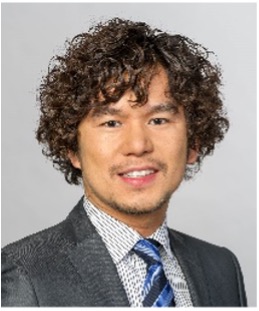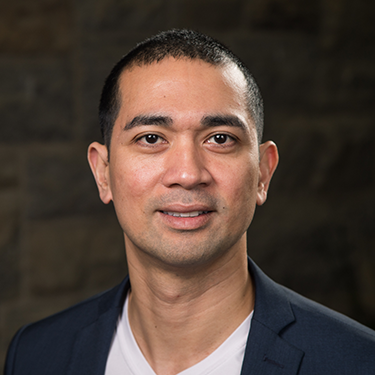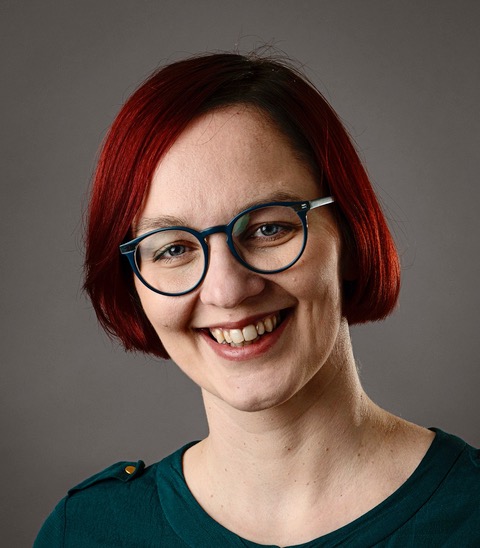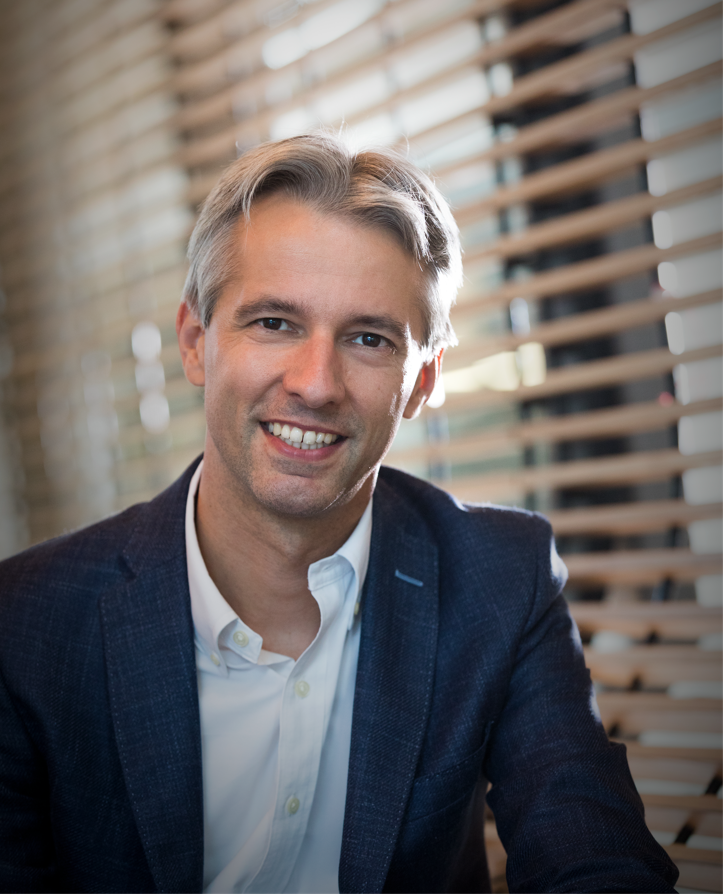MODERN CATALYSIS 3
“AMU Invited Lecture Series in MODERN CATALYSIS 3” is a series of lectures by world- renowned experts in catalysis, green chemistry, organometallic chemistry, and the synthesis of fine chemicals. The research carried out by the invited speakers belongs to the most actual and fast- developing areas of chemical sciences and catalysis. The series in MODERN CATALYSIS 3 will continue the previous two successful cycles AMU Invited Lecture Series in MODERN CATALYSIS 1 and MODERN CATALYSIS 2, which were financed by the IDUB program. Both series and the new, planned cycle allow presenting advanced research based on catalysis, carried out by outstanding scientists from high-rank universities and institutes to the AMU community. The lecturers have been chosen according to their expertise in various aspects of catalysis. Within this series the discussion about flow chemistry in catalysis, application of green solvents, main-group elements and transition metal complexes in catalytic processes will be carried out. The emphasis will be placed on the activation of various carbon-hydrogen and carbon-heteroatom bonds, asymmetric catalysis, and addition reactions to unsaturated bonds. Moreover, the application of modern techniques in catalysis, mechanisms discussion and the sustainability of processes will be a part of this series.
The chemistry at AMU is closely related to homogeneous and heterogeneous catalysis and organometallic chemistry. Several research groups are working on catalytic processes, the synthesis of advanced molecules, and mechanical investigations of reactions. The proposed lectures in MODERN CATALYSIS 3 might inspire scientists at AMU to use catalytic processes in their research projects, build a new scientific network, and open horizons to novel and very modern topics in chemical sciences. The lecturers guarantee the highest quality of research, and their achievements can help scientists from AMU to develop new strategies for novel projects and high-impact publications. Moreover, this series of lectures is addressed to young researchers, Ph.D. students and MSc students, who will have the opportunity to hear top lectures in catalysis, who are often invited with plenary or keynote lectures on the most prominent world conferences. Considering that most new processes are carried out in the presence of catalysts, the proposed AMU series of invited lectures is MODERN CATALYSIS 3 is addressed to all chemists.
The lectures will be given online using standard platforms (e.g., MS Teams or Zoom) or in person when the funds for the travels of invited lecturers will be acquired (ID-UB projects, Akademicki Poznan initiative). Five lectures are planned. They will be organized in the winter semester of the academic year 2023/2024. Each lecture will be announced on the AMU website and on social media and the posters will be prepared.
Prof. Dr. Katalin Barta (University of Graz, Austria) started her independent career at the Stratingh Institute for Chemistry at the University of Groningen in 2013 as tenure track assistant professor. In 2017 she was promoted to associate professor, now she is a professor at the University of Graz. Previously, she carried out her master’s research in the area “Alternative solvents in catalysis” at ELTE Budapest, Hungary (with Prof. István T. Horváth), and at Leeds University. She earned her Ph.D. in 2008 at RWTH-Aachen, Germany (with Prof. Walter Leitner) in homogeneous catalysis and ligand design. She was then a postdoctoral researcher (2008-2010) with Prof. Peter Ford at University of California, Santa Barbara in the conversion of renewable resources with homogeneous and heterogeneous catalysts. After, she was Associate Research Scientist (2010-2012) at Yale University, Center for Green Chemistry (New Haven, USA) with Prof. Paul T. Anastas. She is the Secretary and Dutch representative of the EuChemSoc division in Green Chemistry. Member of the EU and national networks “SuBiCat ITN” European network on lignin valorization; “CatchBio” National network on valorization of renewables and was Associated member of “CenSURF” at UCSB. She is recipient of the ERC Starting Grant 2015, and the Talent Scheme VIDI Grant 2015 of the NWO. In 2019 Katalin Barta received the Netherlands’ Catalysis and Chemistry Conference Award (NCCC). Her research concerns the conversion of renewable resources and heterogeneous and homogeneous catalysis using earth-abundant metals, with particular emphases on the depolymerization of lignocellulosic resources with a view to developing drugs, polymers and biofuels based on biomass. She is a chair of the ChemSusChem (Wiley). She published more than 80 papers in very prestigious journals, e.g., J. Amer. Chem. Soc., Chem. Rev., ChemSusChem, ACS Sustain. Chem. Eng., Nature, Hirsch index = 40.
Selected papers:
- “One-Pot Catalytic Conversion of Lignin-Derivable Guaiacols and Syringols to Cyclohexylamines” X. Wu, M. De Bruyn, K. Barta, ChemSusChem, 2022, 15, e202200914.
- “High yield production of 1,4-cyclohexanediol and 1,4-cyclohexanediamine from high molecular-weight lignin oil” X. Wu, M. De bruyn, J. M. Hulan, H. Brasil, Z. Sun, K. Barta, Green Chem., 2022, 25, 211–220.
- “Fully lignocellulose-based PET analogues for the circular economy” X. Wu, M. V. Galkin, T. Stern, Z. Sunm K. Barta, Nature Comm., 2022, 13, 33762022.
- “Direct Catalytic N‐Alkylation of α‐Amino Acid Esters and Amides Using Alcohols with High Retention of Stereochemistry” T. Yan, B. L. Feringa, K. Barta, ChemSusChem, 2021, 14, 2303-2307.
- “Bright side of lignin depolymerization: toward new platform chemicals” Z. Sun, B. Fridrich, A. de Santi, S. Elangovan, K. Barta Chem. Rev. 2018, 118 (2), 614-678.
 Prof. Dr. Shigeyoshi Inoue (Technische Universität München, Germany) studied chemistry at the University of Tsukuba (Japan), earning B.Sc and M.Sc. under the supervision of Prof. Dr. Akira Sekiguchi and he remained in the Sekiguchi group to carry out his doctoral studies, obtaining his Ph.D. in 2008. As an Alexander von Humboldt grantee as well as a JSPS grantee, he spent the academic year 2008-2010 at the Technical University of Berlin in the group of Prof. Dr. Matthias Drieß. In 2010 he established an independent research group as a Sofja Kovalevskaja Professor at the Technical University of Berlin. Since 2015 he has been on the faculty at the Technical University of Munich (TUM), where he holds a professorship of silicon chemistry. He was a chairman of German Chemical Society (GDCh) in Berlin (2013- 2015)
Prof. Dr. Shigeyoshi Inoue (Technische Universität München, Germany) studied chemistry at the University of Tsukuba (Japan), earning B.Sc and M.Sc. under the supervision of Prof. Dr. Akira Sekiguchi and he remained in the Sekiguchi group to carry out his doctoral studies, obtaining his Ph.D. in 2008. As an Alexander von Humboldt grantee as well as a JSPS grantee, he spent the academic year 2008-2010 at the Technical University of Berlin in the group of Prof. Dr. Matthias Drieß. In 2010 he established an independent research group as a Sofja Kovalevskaja Professor at the Technical University of Berlin. Since 2015 he has been on the faculty at the Technical University of Munich (TUM), where he holds a professorship of silicon chemistry. He was a chairman of German Chemical Society (GDCh) in Berlin (2013- 2015)
and since 2021 he has been a coordinator of Inorganic Chemistry Division at TUM. He was honored with many distinctions and awards JSPS Prize (Japan Society for the Promotion of Science, 2022), ERC Consolidator Grant (European Research Council, ERC, 2020) Eugen und Ilse Seibold Prize (German Research Foundation, DFG, 2020), Carl Duisberg Memorial Prize (The German Chemical Society, GDCh, 2017), Progress Award in Silicon Chemistry (The Society of Silicon Chemistry, Japan, 2017), ERC Starting Grant (European Research Council, ERC, 2014). His research interests focus on the synthesis, characterization and reactivity investigation of compounds containing low-valent main group elements (group 13, 14 and 15 elements) with unusual structures and unique electronic properties, with the goal of finding novel applications. A particular emphasis is laid on low-coordinate silicon compounds. So far, he published 165 publications in peer-review journals including 2 papers in Nature Chem., 1 paper in Nature Syn., 1 paper in Nature Comm., 25 papers in J. Am. Chem. Soc., 26 papers in Angew. Chem. Int. Ed., 1 article in Chem. Rev. and 1 article in Chem. Soc. Rev.
Selected papers:
- “An Aluminium Telluride with a Terminal Al=Te Bond and its Conversion to an Aluminium Tellurocarbonate by CO2 Reduction”, H. Xu, A. Kostenko, C. Weetman, S. Fujimori, S. Inoue, Angew. Chem. Int. Ed., 2023, 62, e202216021.
- “Room Temperature Intermolecular Dearomatization of Arenes by an Acyclic Iminosilylene” H. Zhu, A. Kostenko, D. Franz, F. Hanusch, S. Inoue J. Am. Chem. Soc., 2022, 144, 1011-1021.
- “Isolation and Reactivity of Tetrylene-Tetrylone-Iron Complexes Supported by Bis(N-Heterocyclic Imine) Ligands” X. Zhao, T. Szilvási, F. Hanusch, J. A. Kelly, S. Fujimori, S. Inoue, Angew. Chem. Int. Ed., 2022, 61, e202208930.
- “Carbon Monoxide in Main-Group Chemistry” S. Fujimori, S. Inoue, J. Am. Chem. Soc., 2022, 144, 2034–2050.
- “Bis(perfluoropinacolato)silane: A Neutral Silane Lewis Superacid Activates Si-F bonds” F. S. Tschernuth, T. Thorwart, L. Greb, F. Hanusch, S. Inoue Angew. Chem. Int. Ed., 2021, 60, 25799-25803.
 Prof. dr. Webster Santos (Virginia Tech, USA) did his B.Sc. (1993-1997) and Ph.D. (1997-2002) at the University of Virginia under the supervision of prof. Timothy Macdonald. Next, he moved to Harvard University as a postdoctoral fellow in the group of prof. Gregory Verdine. From 2004-2005 he was a Teaching Fellow at Harvard University. In 2006 he started his work at Virginia Tech, first as an assistant professor (2006-2013), associate professor (2013-2018), and professor (2018-). He is Organic Chemistry Faculty Search Chair (2021-) and Analytical Services and Facilities Advisory Group Chair, (2022-) at Virginia Tech. From 2022 he serves as a director at the Virginia Tech Center for Drug Discovery. His research is focused on the application of organic synthesis in medicinal chemistry and chemical biology. Central to his group work is synthetic methods development and discovery of molecules that improve human health. Currently, the work is aimed at the following subjects: i) development of methods that install boron or silicon into carbon stereoselectively; ii) development of medium-sized branched peptides to target RNA structures associated with HIV; iii) drug discovery, specifically sphingosine kinase and S1P transporters as drug targets, and mitochondrial uncouplers. His research was awarded with many honors and distinctions, e.g., Outstanding Undergraduate Research Faculty Mentor (2023), Fellow of the Royal Society of Chemistry (2019), FLSI- ICTAS Innovators Award, Virginia Tech (2014), American Chemical Society Young Academic Investigator (2012). He is an author of 20 patens and 120 articles in peer-reviewed journals (H-index = 30). He belongs to the editorial boards of Molecules, Medicinal Chemistry Section (2019-), Medicinal Research Reviews (2017-), Journal of Biochemistry and Molecular Biology Research (2014-).
Prof. dr. Webster Santos (Virginia Tech, USA) did his B.Sc. (1993-1997) and Ph.D. (1997-2002) at the University of Virginia under the supervision of prof. Timothy Macdonald. Next, he moved to Harvard University as a postdoctoral fellow in the group of prof. Gregory Verdine. From 2004-2005 he was a Teaching Fellow at Harvard University. In 2006 he started his work at Virginia Tech, first as an assistant professor (2006-2013), associate professor (2013-2018), and professor (2018-). He is Organic Chemistry Faculty Search Chair (2021-) and Analytical Services and Facilities Advisory Group Chair, (2022-) at Virginia Tech. From 2022 he serves as a director at the Virginia Tech Center for Drug Discovery. His research is focused on the application of organic synthesis in medicinal chemistry and chemical biology. Central to his group work is synthetic methods development and discovery of molecules that improve human health. Currently, the work is aimed at the following subjects: i) development of methods that install boron or silicon into carbon stereoselectively; ii) development of medium-sized branched peptides to target RNA structures associated with HIV; iii) drug discovery, specifically sphingosine kinase and S1P transporters as drug targets, and mitochondrial uncouplers. His research was awarded with many honors and distinctions, e.g., Outstanding Undergraduate Research Faculty Mentor (2023), Fellow of the Royal Society of Chemistry (2019), FLSI- ICTAS Innovators Award, Virginia Tech (2014), American Chemical Society Young Academic Investigator (2012). He is an author of 20 patens and 120 articles in peer-reviewed journals (H-index = 30). He belongs to the editorial boards of Molecules, Medicinal Chemistry Section (2019-), Medicinal Research Reviews (2017-), Journal of Biochemistry and Molecular Biology Research (2014-).
Selected papers:
- “Regio- and Stereoselective Copper-Catalyzed Borylation-Protodeboronation of 1,3-Diynes: Access to (Z)-1,3-Enynes” Burgio, A.L.; Buchbinder, N.W.; Santos, W.L. Org. Lett. 2023, https://pubs.acs.org/doi/full/10.1021/acs.orglett.3c00711.
- “Phosphine-Catalyzed Regio- and Stereo-selective Hydroboration of Ynamides to (Z)-β-borylenamides” Jos, S.; Tan, C.; Thilmany, P.; Saadane, A.; Evano, G.; Santos, W.L. Chem. Commun. 2022, 58, 13751-13754.
- “Oxadiazolopyridine Derivatives as Efficacious Mitochondrial Uncouplers in the Prevention of Diet-Induced Obesity“ Murray, J.; Burgio, A.; Beretta, M.; Hargett, S.; Olzomer, E.; Grams, R.J.; Garcia, C.; Li, C.; Salamoun, J.; Hoehn, K.; Santos, W.L. J. Med. Chem. 2023, 66, 3876–3895..
- “First-Row d-Block Element-Catalyzed Carbon-Boron Bond Formation and Related Processes Bose”, S.; Mao, L.; Kuehn, L.; Radius, U.; Nekvinda, J.; Santos, W.L.; Westcott, S.A.; Steel, P.G.; Marder, T.B. Chem. Rev. 2021, 13341.
- "Organocatalytic trans Phosphinoboration of Internal Alkynes", Fritzemeier, R.G.; Nekvinda, J.; Vogels, C.M.; Rosenblum, C.A.; Slebodnick, C.; Westcott, S.A.; Santos, W.L. Angew. Chem. Int. Ed. 2020, 59, 14358 –14362.
 Prof. dr. Małgorzata Swadźbdy-Kwaśna (Queen's University Belfast, North Ireland) graduated from the Silesian University of Technology in Gliwice, Poland (2005) with an MSc Eng in Chemical Technology. In her final year, she researched oxidations in ionic liquids under the supervision of Prof Chrobok. She then moved to Queen's University Belfast where she studied acidic ionic liquids for her PhD degree, supervised by Prof. Ken Seddon at Queen’s University Ionic Liquid Laboratories (QUILL). Following graduation (2009). She worked a post-doctoral researcher at QUILL, and was involved both in fundamental studies of inorganic chemistry in ionic liquids, and in industrial collaborations with Petronas and Evonik. In 2015 prof. Swadźba-Kwaśny won Queen’s University Research Fellowship in Green Chemistry (a tenure-track position) and established her own research group. She was promoted to a Senior Lecturer in 2019 and to a Professor of Inorganic Chemistry in 2021. Since 2018, she has been the Director of the QUILL Research Centre. Her research interests lie in ionic liquids and other advanced liquid materials. She is particularly interested in Brønsted and Lewis acidic liquids for catalytic applications, in combining ionic liquids with main group chemistry (particularly frustrated Lewis pairs), and liquid-phase speciation of metal complexes. She collaborates extensively with ISIS Neutron and Muon Source and Diamond Light Source to access advanced neutron scattering and X-ray spectroscopic techniques for the study of the liquid phase. In parallel, she is involved in a range of industrial collaborations. She is a Member of the Royal Society of Chemistry. She serves as a member of the Editorial Advisory Board for ACS Sustainable Chemistry & Chemical Engineering. Her H-index is 26 and the publications were cited more than 2100 times.
Prof. dr. Małgorzata Swadźbdy-Kwaśna (Queen's University Belfast, North Ireland) graduated from the Silesian University of Technology in Gliwice, Poland (2005) with an MSc Eng in Chemical Technology. In her final year, she researched oxidations in ionic liquids under the supervision of Prof Chrobok. She then moved to Queen's University Belfast where she studied acidic ionic liquids for her PhD degree, supervised by Prof. Ken Seddon at Queen’s University Ionic Liquid Laboratories (QUILL). Following graduation (2009). She worked a post-doctoral researcher at QUILL, and was involved both in fundamental studies of inorganic chemistry in ionic liquids, and in industrial collaborations with Petronas and Evonik. In 2015 prof. Swadźba-Kwaśny won Queen’s University Research Fellowship in Green Chemistry (a tenure-track position) and established her own research group. She was promoted to a Senior Lecturer in 2019 and to a Professor of Inorganic Chemistry in 2021. Since 2018, she has been the Director of the QUILL Research Centre. Her research interests lie in ionic liquids and other advanced liquid materials. She is particularly interested in Brønsted and Lewis acidic liquids for catalytic applications, in combining ionic liquids with main group chemistry (particularly frustrated Lewis pairs), and liquid-phase speciation of metal complexes. She collaborates extensively with ISIS Neutron and Muon Source and Diamond Light Source to access advanced neutron scattering and X-ray spectroscopic techniques for the study of the liquid phase. In parallel, she is involved in a range of industrial collaborations. She is a Member of the Royal Society of Chemistry. She serves as a member of the Editorial Advisory Board for ACS Sustainable Chemistry & Chemical Engineering. Her H-index is 26 and the publications were cited more than 2100 times.
Selected papers:
- “The structure of protic ionic liquids based on sulfuric acid, doped with excess of sulfuric acid or with water”, A. McGrogan, E.L. Byrne, R. Guiney, T. Headen, T. G. A. Youngs, A. Chrobok, J. D. Holbrey, M. Swadźba-Kwaśny, Phys. Chem. Chem. Phys., 2023, 25, 9785 (cover, hot paper).
- “Understanding plasma–ethanol non-equilibrium electrochemistry during the synthesis of metal oxide quantum dots” D. B. Padmanaban, R. McGlynn, E. L. Byrne, T. Velusamy, M. Swadź ba-Kwaś ny, P. Maguire and D. Mariotti, Green Chem., 2021, 23, 3983.
- “Borenium ionic liquids as alternative to BF3 in polyalphaolefins (PAOs) synthesis” J.M. Hogg, A. Ferrer-Ugalde, F. Coleman, M. Swadzba-Kwasny ACS Sustain. Chem. Eng., 2019, 7, 15044.
- “Lewis superacidic ionic liquids with tricoordinate borenium cations” S.Coffie, J.M.Hogg, L.Cailler, A.Ferrer-Ugalde, R.W.Murphy, J.D.Holbrey, F.Coleman, M. Swadź ba-Kwaś ny, Angew. Chem. Int. Ed., 2015, 54, 14970. (hot paper)
- “Friedel-Crafts alkylation catalysed by GaCl3- based liquid coordination complexes” K. Matuszek, A. Chrobok, J.M. Hogg, F. Coleman, M. Swadź ba-Kwaś ny, Green Chem., 2015, 17, 4255.
 Prof. dr. Timothy Noël (University of Amsterdam, The Netherlands) received in 2004 his MSc degree (Industrial Chemical Engineering) from the KaHo Sint-Lieven in Ghent. He then moved to Ghent University to obtain a PhD at the Laboratory for Organic and Bioorganic Synthesis under the supervision of Professor Johan Van der Eycken (2005-2009). Next, he started working at Massachusetts Institute of Technology (MIT) as a Fulbright Postdoctoral Fellow with Professor Stephen L. Buchwald. At MIT, he worked on the development of new continuous-flow methods for cross-coupling chemistry at the MIT-Novartis Center for Continuous Manufacturing. He became assistant professor in 2012 and associate professor in 2017 at Eindhoven University of Technology. In 2020, he was promoted to Full Professor at the University of Amsterdam where he is the Chair of Flow Chemistry. In 2022 he obtained ERC consolidator grant. His research interests are flow chemistry, homogeneous catalysis and organic synthesis. He coordinated the Marie Skłodowska-Curie ETN programs “Photo4Future” (2015-2018) and “PhotoReAct” (2021-2024). His research on flow chemistry was recognized with several awards, including the DECHEMA award (2017), the Hoogewerff Jongerenprijs (2019), the IUPAC-ThalesNano Flow Chemistry Award (2020) and the KNCV Gold Medal (2021). He is the editor in chief of Journal of Flow Chemistry. He is the author of 200 papers (H-index 54).
Prof. dr. Timothy Noël (University of Amsterdam, The Netherlands) received in 2004 his MSc degree (Industrial Chemical Engineering) from the KaHo Sint-Lieven in Ghent. He then moved to Ghent University to obtain a PhD at the Laboratory for Organic and Bioorganic Synthesis under the supervision of Professor Johan Van der Eycken (2005-2009). Next, he started working at Massachusetts Institute of Technology (MIT) as a Fulbright Postdoctoral Fellow with Professor Stephen L. Buchwald. At MIT, he worked on the development of new continuous-flow methods for cross-coupling chemistry at the MIT-Novartis Center for Continuous Manufacturing. He became assistant professor in 2012 and associate professor in 2017 at Eindhoven University of Technology. In 2020, he was promoted to Full Professor at the University of Amsterdam where he is the Chair of Flow Chemistry. In 2022 he obtained ERC consolidator grant. His research interests are flow chemistry, homogeneous catalysis and organic synthesis. He coordinated the Marie Skłodowska-Curie ETN programs “Photo4Future” (2015-2018) and “PhotoReAct” (2021-2024). His research on flow chemistry was recognized with several awards, including the DECHEMA award (2017), the Hoogewerff Jongerenprijs (2019), the IUPAC-ThalesNano Flow Chemistry Award (2020) and the KNCV Gold Medal (2021). He is the editor in chief of Journal of Flow Chemistry. He is the author of 200 papers (H-index 54).
Selected papers:
- “A field guide to flow chemistry for synthetic organic chemists” Capaldo, L.; Wen, Z., Noël, T. Chem. Sci., 2023, DOI:10.1039/D3SC00992K
- “Photocatalytic Alkylation of C(sp3)−H Bonds Using Sulfonylhydrazones” Pulcinella, A.; Bonciolini, S.; Lukas, F.; Sorato, A.; Noël, T. Angew. Chem. Int. Ed. 2023, 62 (3), e202215374.
- “Photoinduced Halogen-Atom Transfer (XAT) by N-heterocyclic carbene boryl radicals for C(sp3)−C(sp3) bond formation” Wan, T.; Capaldo, L.; Ravelli, D.; Vitullo, W.; de Zwart, F.; de Bruin, B., Noël, T. J. Amer. Chem. Soc. 2023, 145 (2), 991–999.
- “Interfacing single-atom catalysis with continuous-flow organic electrosynthesis”, Bajada, M. A.; Sanjosé-Orduna, J.; Di Liberto, G.; Tosoni, S.; Pacchioni, G.; Noël, T., Vilé, G. Chem. Soc. Rev. 2022, 51 (10), 3898-3925.
- “Technological Innovations in Photochemistry for Organic Synthesis: Flow Chemistry, High-Throughput Experimentation, Scale- up, and Photoelectrochemistry” Buglioni, L.; Raymenants, F.; Slattery, A.; Zondag, S. D. A., Noël, T. Chem. Rev. 2022, 122 (2), 2752-2906.